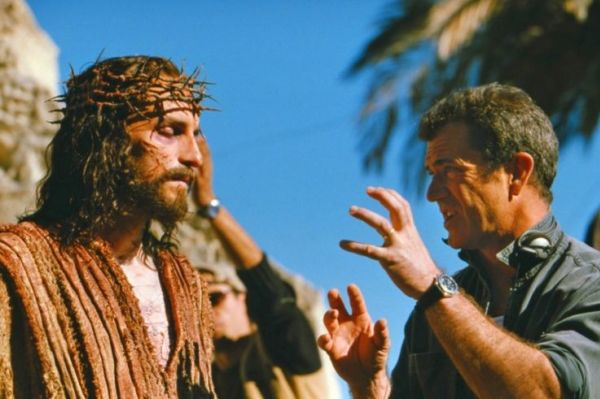Does Hollywood's 'Noah' Miss the Point? One Pastor Explains What That Point Is
Correction appended
As the $125-million blockbuster "Noah" hit theaters Friday, one pastor sought to enlighten readers on what the biblical story of Noah is about and to apparently help Christians better decide if the Hollywood film misses the point.
Biblically faithful Christians would be quick to point out that popular depictions of Noah "inevitably miss the point entirely," Pastor Steve Tompkins, director of Mars Hill Schools, says in a blog post on the Resurgence website.
"What then is the point?" he asks, pointing out that many Christians think the flood is about sin, righteousness and the wrath of God. "While that is at least partly true, partial truths can be the most misleading of all," he adds.
The story of Noah, Tompkins says, introduces some of the central themes of Scripture for the first time within the unfolding narrative of God. He lists three of them.
First, it shows that sin is grievous to God.
Genesis 6:6–7 has the first recorded glimpse of God's response to sin at an emotional level, he writes. "Interestingly, God's first response is not wrath or anger. Rather, what we see is sorrow tinged with regret, as we are told that God is literally grieved to the heart."
Sin is primarily relational, Tompkins stresses. "For God, our sin is deeply personal … something akin to the emotions of a loving dad pained and grieved to the heart over the persistent sin of a rebellious son or daughter. Yes, anger is in the mix, but the primary emphasis is deep pain and disappointment borne through many years of patient love."
Second, Noah's story shows that God is gracious. It gives us the first ever mention of grace in the Bible, the pastor writes.
Many Christians believe that God saved Noah and his family because he was a righteous man, blameless in his generation. But that's not true, Tompkins tells readers.
"The story is wrongly told that there were a bunch of bad guys who drowned and one good guy who got a boat," Tompkins says, adding that the moral of that story then is that if you are a good guy then God will save you from death and wrath. But that's not the Gospel, he argues.
We often miss Genesis 6:8, which states "but Noah found favor (literally grace) in the eyes of the Lord."
Noah was a righteous man only by grace, not by works, Tompkins underlines.
Mark Driscoll, founding pastor of Mars Hill Church, also stresses that point in a separate post. He says many Christians misread the account of Noah.
"The story is wrongly told that there were a bunch of bad guys who drowned and one good guy who got a boat. The moral of the story is that if you are a good guy then God will save you from death and wrath. The problem? This is not the gospel," he explains. "Noah did not begin as a righteous man, but rather he began as a sinner not unlike everyone else on the earth in his day. The only difference between Noah and the other sinners who died in the flood of judgment was that God gave grace to Noah.
"Noah was not a good guy, but a graced guy."
Listing the third central theme in the Noah account, Tompkins says the story shows that God makes a covenant with us.
"The most hopeful note of all, however, comes with the first-ever occurrence in Scripture of the word 'covenant.' This is the story of a loving and patient Father whose children, created in his own image, bring him pain, anguish, and grief through unmitigated rebellion," says the pastor.
God's response is judgment, bringing universal death through the flood, Tompkins continues. "But the flood, although deserved, is powerless to wipe out sin and provide a new beginning for a righteous humanity in a new garden."
While the flood accomplished nothing in one sense, it anticipated everything. "Noah and his family were saved by grace. God established a covenant through one man by which the human race was preserved." It anticipated "a better covenant established once-for-all through one man, Jesus."
The story of Noah is something like one bite of a bacon-wrapped appetizer, Tompkins says in conclusion. "It is not satisfying in itself, but should cause us to salivate in anticipation of the banquet to come. Let us not miss the point."
Correction: Sunday, March 30, 2014:
A previous version of this article incorrectly stated that Pastor Mark Driscoll of Mars Hill Church wrote the blog post explaining three central themes in the biblical account of Noah. Steve Tompkins, also part of Mars Hill Church, wrote the post, not Driscoll.





















